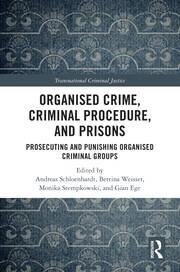Organised crime networks have successfully infiltrated the Common Agricultural Policy (CAP) system, leading to a massive fraud scheme uncovered in Italy involving approximately EUR 20 million. Authorities detected the intricate operation, which exploited European Union agricultural subsidies intended to support legitimate farmers. The revelation underscores ongoing challenges in safeguarding EU funds from illicit activities and highlights the relentless efforts of law enforcement agencies to dismantle criminal enterprises targeting public resources.
Organised Crime Penetrates Common Agricultural Policy Funding in Italy
The discovery of a sophisticated scheme involving organised crime groups exploiting the Common Agricultural Policy (CAP) funding has sent shockwaves through Italy’s agricultural sector. Authorities uncovered fraudulent claims amounting to approximately EUR 20 million, siphoned off through fictitious farming enterprises and false subsidy applications. This illicit operation not only undermines EU agricultural financial support but also distorts the rural economy, threatening legitimate farmers who rely on these funds to sustain their livelihoods.
Investigations revealed several key modus operandi used by the criminal networks, including:
- Creation of sham companies with no actual agricultural activity
- Manipulation of land ownership documents to meet subsidy eligibility
- Collusion with local officials to bypass routine checks
- Use of shell corporations to launder subsidy proceeds
| Aspect | Details |
|---|---|
| Scope of Fraud | EUR 20 million |
| Region | Southern Italy |
| Number of Entities | 18 sham companies |
| Status | Ongoing investigations |
Detailed Investigation Reveals Sophisticated EUR 20 Million Fraud Scheme
Italian authorities have dismantled a highly organised criminal network responsible for siphoning off approximately EUR 20 million through a complex fraudulent scheme targeting the Common Agricultural Policy (CAP) funds. The investigation exposed how offenders manipulated subsidy claims, exploiting weaknesses in verification procedures across several regions. Key individuals orchestrated fake agricultural cooperatives, submitting fabricated documentation and inflating crop production data to receive unjustified payments over multiple fiscal years.
- Establishment of phantom farms with forged land titles
- Collusion between local officials and crime syndicates
- Layered financial transactions to conceal money trails
- Use of shell companies to launder illicit proceeds
Presented below is a concise summary of the fraud components identified:
| Fraud Element | Modus Operandi | Estimated Loss (€M) |
|---|---|---|
| Fake documentation | Forged land ownership and crop reports | 8 |
| Collusion | Bribery of local officials to bypass controls | 5 |
| Money laundering | Use of shell companies and offshore accounts | 7 |
Experts Call for Strengthened Oversight and Enhanced Transparency Measures
Industry specialists and policy analysts are urging immediate reforms to counter the alarming infiltration of organised crime within the Common Agricultural Policy (CAP). The recent exposure of a €20 million fraud scheme in Italy has highlighted systemic vulnerabilities in funding oversight mechanisms. Experts emphasize that without rigorous accountability frameworks, such breaches will continue to undermine the program’s integrity and the broader EU agricultural sector.
Key recommendations include implementing stricter audit protocols and leveraging digital transparency tools to track fund allocations. Proposed measures also focus on:
- Enhanced cross-border collaboration between law enforcement and regulatory bodies
- Mandatory real-time disclosure of beneficiary data
- Independent oversight committees with civil society representation
- Advanced data analytics to detect irregular financial patterns
| Measure | Expected Impact | Implementation Timeline |
|---|---|---|
| Real-time Data Disclosure | Improved public scrutiny, reduced opacity | Within 12 months |
| Independent Oversight Committees | Increased accountability and stakeholder trust | 6-9 months |
| Advanced Analytics Tools | Rapid fraud detection and prevention | 18 months |
To Wrap It Up
The discovery of a EUR 20 million fraud scheme tied to organised crime within Italy’s Common Agricultural Policy (CAP) administration marks a significant blow to the integrity of European Union funding mechanisms. Authorities continue to investigate the extent of the infiltration, underscoring the urgent need for enhanced oversight and stricter controls to safeguard public funds. As this case unfolds, it serves as a stark reminder of the ongoing challenges posed by organised crime in exploiting EU resources and the importance of vigilant enforcement to protect the interests of taxpayers across the continent.




